Brazilians to choose next president in runoff vote
Updated: 2014-10-26 15:13
(Xinhua)
|
||||||||
His main campaign message has been that a change in government will boost the business sector and consumer confidence, leading to resumed growth in 2015 that will be in turn reinforced by a return to fiscal austerity and a more aggressive anti-inflation policy.
Neves also accused Finance Minister Guido Mantega of using "creative accounting" to conceal fiscal problems and of being too soft in fighting inflation.
Rousseff, who is seeking a second four-year term, defended her government's performance, saying that Brazil's current unemployment is at its lowest level of 5 percent, and the minimum wage is adjusted annually to keep up with inflation and reflect economic growth to guarantee the purchasing power of Brazilian workers.
She has pledged to reform the tax system, revamp her treasury team, and promote domestic consumption, arguing that Brazil's slower growth is the result of lower external demand due to the international economic crisis.
Rousseff's economic team said that this year's higher inflation rate was sparked by shortages resulting from drought in parts of the country.
Her campaign team accused Neves of planning a return to the fiscal policies implemented by the Social Democratic government of Fernando Henrique Cardoso between 1995 and 2003, which raised interest rates to fight inflation, and at the same time benefit the financial sector.
The incumbent's camp also defends its implementation of the macroeconomic triad, forecasting that this year's fiscal surplus, projected to be between 0.5 and 1 percent of gross domestic product (GDP), can be increased next year to between 2 and 2.5 percent of GDP.
Rousseff is confident that as from next year, the economy will begin to feel the results of major infrastructure investment made this year in airports, ports and highways.
The government has built the foundations for a "new cycle of development," thanks to significant investment in the energy sector through state-owned banks, Rousseff's camp has said.
Brazil's middle class is the key to the race, as they are divided over Rousseff's transformative social policies and their number is increasing rapidly.
The candidates will have to battle for the new middle class if they want to win the runoff, analysts said.
- Brazil's Embraer unveils KC-390 military transport
- Brazil election poll shows Rousseff gaining momentum over Neves
- Brazil needs its own version of China Dream, expert says
- Huawei uses Brazil exhibition to show products
- Brazil defender Dante wants to become German
- Neymar scores all 4 as Brazil beats Japan 4-0
- Argentina, Brazil soccer teams dazzle Beijing

 Beijingers see blue sky again after smoggy days
Beijingers see blue sky again after smoggy days
 9th Rome Film Festival kicks off
9th Rome Film Festival kicks off
 Highlights of China Fashion Week
Highlights of China Fashion Week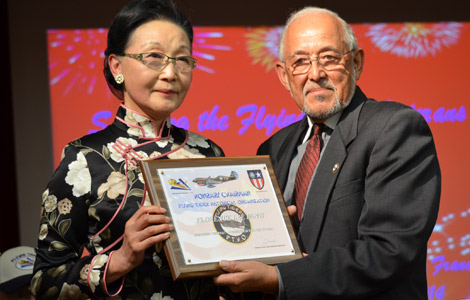
 Remembrance of Flying Tigers & WWII Veterans
Remembrance of Flying Tigers & WWII Veterans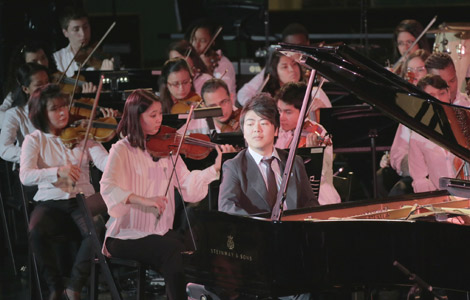
 Lang Lang plays at the UN Day concert
Lang Lang plays at the UN Day concert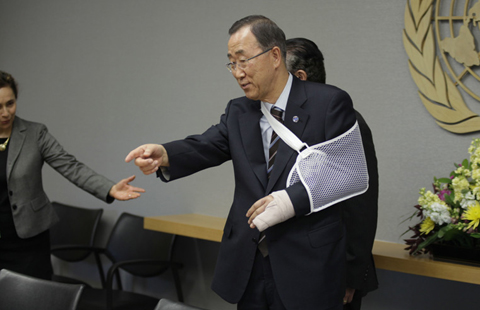
 Politicians don't let minor injuries stop them
Politicians don't let minor injuries stop them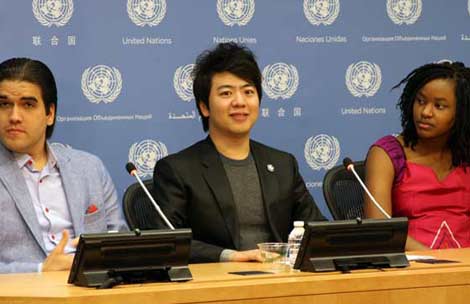
 Concert with Chinese pianist helps UN celebrate anniversary
Concert with Chinese pianist helps UN celebrate anniversary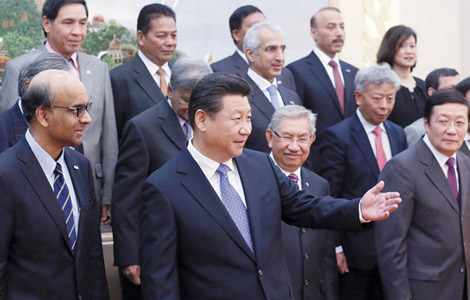
 Accord reached on key bank
Accord reached on key bank
Most Viewed
Editor's Picks

|

|

|

|

|

|
Today's Top News
Beijing plans steps to clean air during APEC
China to ensure military spending efficiency
361 to make uniforms for Rio Games
China to provide the 4th batch of assistance to fight ebola
Concert with Chinese pianist helps UN celebrate anniversary
Accord reached on Asia infrastructure bank
Civil service exam hit amid corruption crackdown
'Miracle' premature baby ready to go home
US Weekly

|

|







